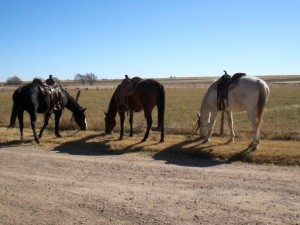**This article is not a substitute for the advice of an attorney.**
Last week a federal jury found that an AQHA rule prohibiting registration of cloned horses violated state and federal antitrust laws. The AQHA has announced that it will appeal this decision.
The AQHA Rule REG 106.1
The AQHA is the world’s largest equine breed registry and membership organization, having more than 5 million registered horses and over 280,000 members. The AQHA allows registration of quarter horses that are conceived by live cover, artificial insemination, and embryo transfer. In 2004, however, the AQHA implemented Rule 227 (the rule has since been re-numbered as Rule REG106.1), which prohibits registration of “horses produced by any cloning process” including “any method by which the genetic material of an unfertilized egg or an embryo is removed and replaced by genetic material taken from another organism, added to/with genetic material from another organism or otherwise modified by any means in order to produce a live foal.” Under the rule, both cloned horses and their offspring are banned from the AQHA registry.
The Lawsuit
In April, 2012, two plaintiffs–an Amarillo veterinarian and a panhandle rancher–filed suit in federal court challenging AQHA Rule REG 106.1. The plaintiffs own horses that are clones or offsprings of clone. The offspring have one registered AQHA parent and the other parent is a clone of an AQHA registered horse.
The lawsuit alleges that the AQHA rule violates the federal Sherman Antitrust Act and the Texas Free Enterprise and Antitrust Act of 1983. Both acts prohibit the monopolization of any part of trade or commerce. Plaintiffs explain that the AQHA enjoys a place of “prominence, dominance and market power” in the quarter horse market and provide numerous examples, including that numerous races are limited to AQHA registered animals, that AQHA registered horses are found in all 50 states and in more than eighty other countries. Plaintiffs claim that Rule REG 106.1 denies cloned horses the ability to complete effectively with registered horses and protects registered horses from having to compete with unregistered horses, which benefits registered horse owners at the expense of owners of cloned quarter horses. Plaintiffs claimed injuries including a 70-80% diminished value of their horses because of the AQHA’s refusal to register their cloned horses, and claim that this also harms the public by inflating the value of registered horses.
The plaintiffs sought both monetary damages and a permanent injunction against the AQHA to prohibit the enforcement of Rule REG 106.1.
The Jury Verdict and Upcoming Appeal
On July 30, 2013, a 10 person federal jury panel seated in Amarillo found that the American Quarter Horse Association rule that prohibits cloned horses from registering in the AQHA violates both state and federal antitrust laws. The jury refused, however, to award plaintiffs any of the millions of dollars in monetary damages requested. The AQHA has announced that it intends to appeal this decision after a unanimous vote by the organization’s Executive Committee.
How Could This Impact Other Animals?
If the decision is upheld, it could lead to similar lawsuits against other animal organizations with similar rules, including the American Paint Horse Association and the American Kennel Club, both of which currently exclude cloned animals.













